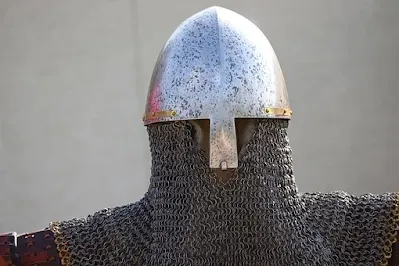Billions of dollars, invested to find out how to eliminate the virus, literally gone up in smoke and destruction of economies with widespread returns to poverty due to the lockdowns, cynically suggested by the scientists themselves, are the dramatic reality of this 2020.
Conferences, honors, Nobel prizes, expensive self-referential publications, to obtain progress and advice from academics, which in the pandemic were miserably medieval devices: bandages on the face, exile from the community, mixtures of chemical extracts, similar to the witches of the dark ages.
The masks - the Dutch discovered - seem useless, hydroxychloroquine was condemned by the Lancet perhaps for political reasons - the scientific environment willingly takes sides pro or against parties and movements - only to discover that the data used were false.
The failure to save humanity from the millennial scourges of pandemics demonstrates serious deficiencies in science and takes away our full confidence.
Stuart Ritche, Scottish psychologist, in the book 'Science Fictions: Exposing Fraud, Bias, Negligence and Hype in Science' has just exposed the incompetence, disappointment, lies, deceit of his professionals.
Peer review, which was supposed to guarantee the absence of malicious interference, ends up amplifying them. Researchers make careers and receive incentives by publishing, without any responsible verification of the assumptions, actually producing false hopes or misunderstanding in the community.
Red wine has been touted as an elixir of life for decades by cardiologist Dipak Das, University of Connecticut, with parameter alterations and bogus experiments.
It often happens, with the complicity of publishers, reluctant to publish negative or repetitive results.
From the thousands of articles on food and cancer it emerged that 40 foods would be dangerous: bacon, pork, eggs, tomato, bread, butter, tea etc. They were set to a small statistical significance, without any investigation into the other factors: poor health, type of diet, socioeconomic conditions.
Just under half of medical science press releases with recommendations appear to have no specific study. 90% of mouse tests are inapplicable to humans; but in the press ignore it.
Science should be boring; instead everyone has made it sensational and mediatic. (theaustralian.com.au / Oct.25 / 2020)
Covid has tragically trapped science in its quicksand, which will have to change its way of being to save itself and us.
La scienza sembra ancora nel Medio Evo
Miliardi di dollari, investiti per scoprire come eliminare il virus, andati letteralmente in fumo e distruzione di economie con diffusi ritorni alla povertà a causa dei lockdown, cinicamente suggeriti dagli scienziati stessi, sono la realtà drammatica di questo 2020.
Conferenze, onori, premi Nobel, pubblicazioni costose auto-referenziali, per ottenere dagli accademici progresso e consulenza, che nella pandemia sono miseramente stati accorgimenti medioevali: bende sul viso, esilio dalla comunità, miscugli di estratti chimici, similmente alle streghe dei secoli bui.
Le maschere- hanno scoperto gli olandesi- sembrano inutili, l'idrossiclorochina è stata condannata da Lancet forse per motivi politici- si, l'ambiente scientifico si schiera volentieri pro o contro partiti e movimenti- per poi scoprire che i dati utilizzati erano fasulli.
L'incapacità di salvare l'umanità dai flagelli millenari delle pandemie dimostra gravi carenze nella scienza e le toglie la nostra piena fiducia.
Stuart Ritche, psicologo scozzese, nel libro 'Science Fictions: Exposing Fraud, Bias, Negligence and Hype in Science' ha appena esposto l'incompetenza, la delusione, le bugie, il dolo dei suoi professionisti.
La revisione tra pari, cioè il 'peer review system', che avrebbe dovuto garantire l'assenza di interferenze malevole, finisce per amplificarle. I ricercatori fanno carriera e ricevono incentivi pubblicando, senza nessuna responsabile verifica degli assunti, producendo di fatto speranze false o incomprensione nella collettività.
Il vino rosso per decenni è stato reclamizzato come elisir di lunga vita dal cardiologo Dipak Das, Università del Connecticut, con alterazioni dei parametri ed esperimenti fasulli.
Accade spesso, con la complicità degli editori, riluttanti a pubblicare risultati negativi o ripetitivi.
Dalle migliaia di articoli su cibo e cancro è emerso che 40 alimenti sarebbero pericolosi: pancetta, maiale, uova, pomodoro, pane, burro, tè etc. Erano impostati su una significatività statistica piccola, senza alcune indagine sugli altri fattori: cattiva salute, tipo di dieta, condizioni socioeconomiche.
Poco meno di metà dei comunicati stampa di scienza medica con raccomandazioni pare essere privo di studio specifico. Il 90% dei test sui topi è inapplicabile all'uomo; ma sulla stampa le notizie lo ignorano.
La scienza dovrebbe essere noiosa; invece tutti l'hanno resa sensazionalistica e mediatica. (theaustralian.com.au /Oct.25 /2020)
Covid ha tragicamente intrappolato nelle sue sabbie mobili la scienza, che per salvare se stessa e noi dovrà cambiare modo d'essere.

Comments
Post a Comment